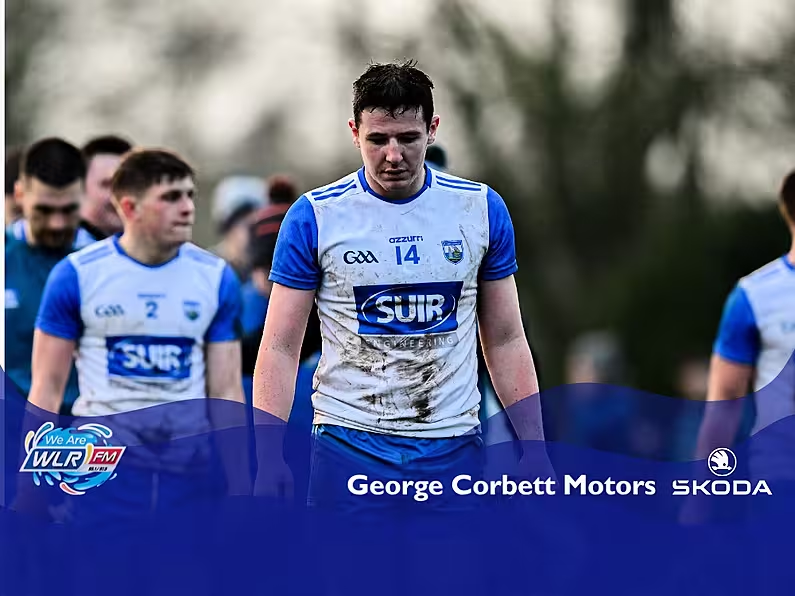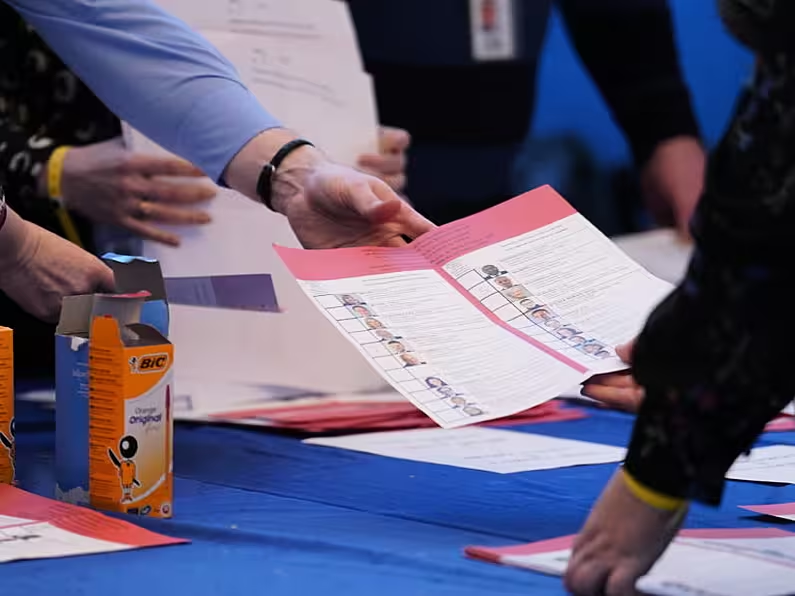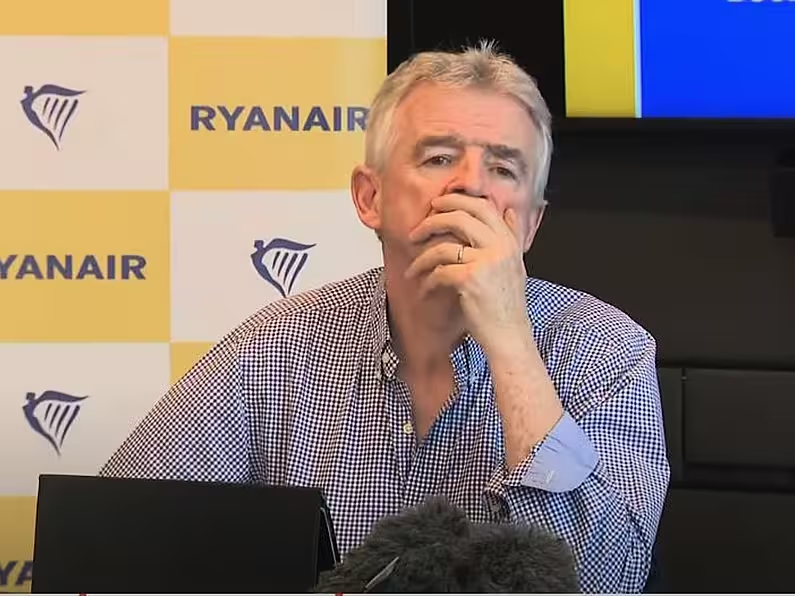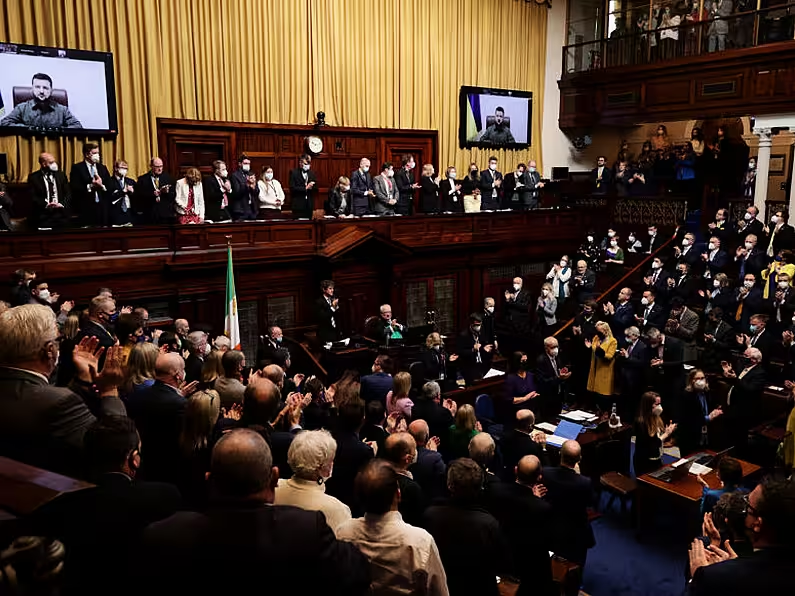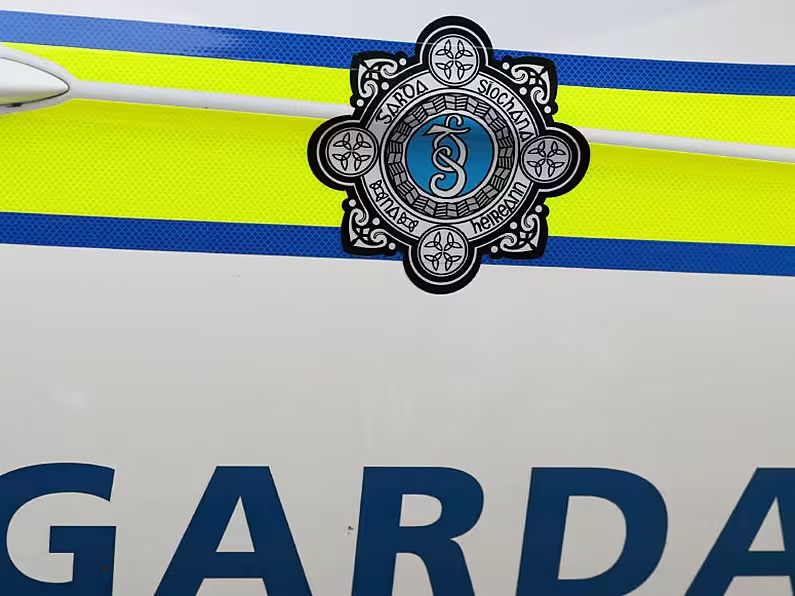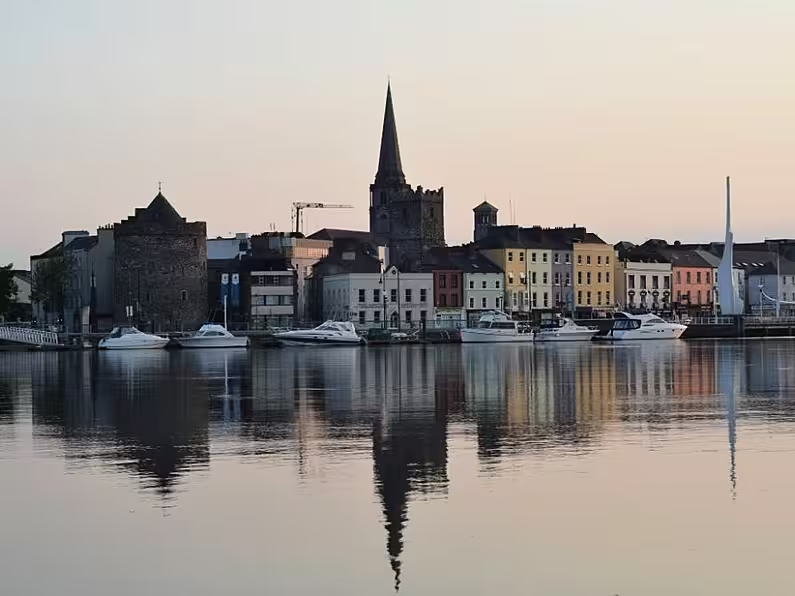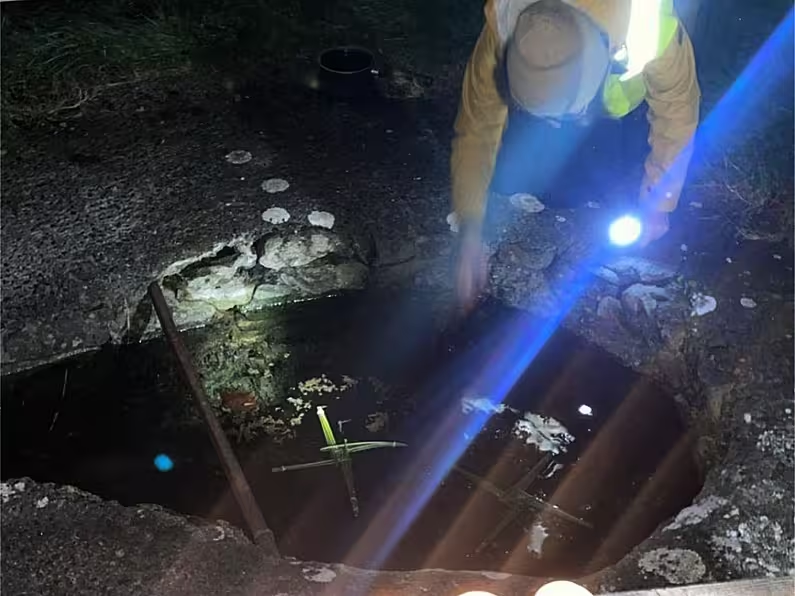Sarah Mooney
More than a year of lockdowns has seen a surge of interest in “van life” in Ireland, as people transform drab builder’s and delivery vans into picturesque homes on wheels.
Declarations of vehicle conversions made to Revenue provide some indication of the steadily-growing numbers converting vans to motor caravans. With 416 conversions processed in 2019, this number grew to 536 in 2020, and the first four months of 2021 brought a further 246.
While many are drilling and sanding their way towards summer staycation trips, some 20-somethings are actively deciding to invest in a van rather than a house.
For Dublin-based couple Dylan Bradley (28) and Luiza Cavalcanti (30), it made sense to buy a home on wheels rather than spend money on rent.
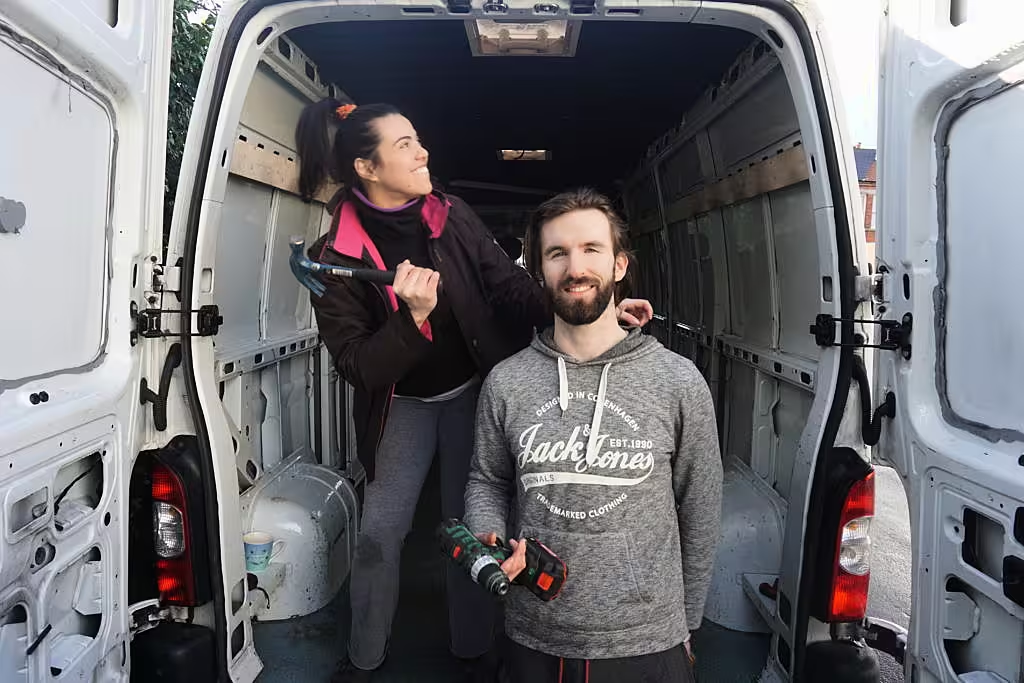
For Dublin-based couple Dylan Bradley (28) and Luiza Cavalcanti (30), it made sense to invest in a home on wheels rather than rent. Photo: @vanlifeescape on Instagram.
While living at Bradley’s family home, the couple converted a van at a similar cost to what many spend in a year renting in the capital – a total of €15,000, including the initial cost of the van and some €10,000 on converting it.
“If you can convert it for over a year's rent in Dublin, you know, and live in it for longer than a year... comparing it to rent, it kind of makes sense,” Bradley said.
“We wanted to be in a comfortable home so we spent a little bit more on our oven, fridge, but you could spend much less than us, you know, it was our choice... [it] was pretty much €15,000 on a home, which is not too bad,” Cavalcanti said.
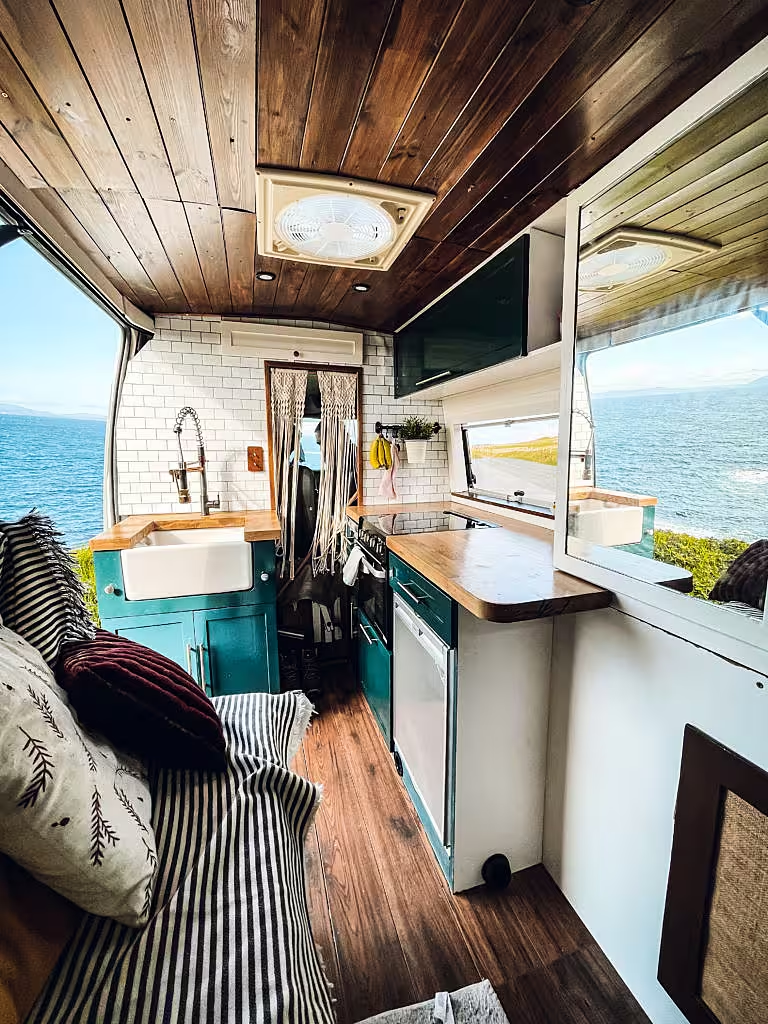
'We wanted it to be comfortable enough to live and have all of our home comforts,' Bradley said. Photo: @vanlifeescape on Instagram.
The couple worked for over a year on converting their van purchased at the end of February 2020, and transformed it from an empty shell into a solar-powered home complete with folding bed, full kitchen and television with Netflix access.
“We wanted it to be comfortable enough to live and have all of our home comforts,” Bradley said.
“We got a good internet router... enough electricity to run like a games console or just watch TV all day or whatever, and a good cooker, a good fridge... the only thing that we don't have is an indoor shower. That's the only thing that we don't have in the van that we do have in our apartment.”

'You’re just at home, wherever you are,' Cavalcanti said. Photo: @vanlifeescape on Instagram.
Though currently waiting for travel restrictions to lift, the couple intend to begin longer-term van life with a trip to Europe.
With Bradley currently working in the pharmaceutical industry while Cavalcanti is a photographer and videographer, they see remote working as a way to support a nomadic lifestyle, and hope to one day upsize to an even larger home on wheels.
Bradley said a “a little bit of money on the road would go a long way”.
“When you're not paying rent, the only bills we'd have is diesel, and then insurance once a year, and food... that’s really it,” he said.

The couple have been limited to trips closer to home amid the pandemic. Photo: @vanlifeescape on Instagram.
For the time-being, the couple have been limited to trips closer to home amid the pandemic, and have gotten to grips with life on the road by spending some nights in the Wicklow Mountains.
“We went to Sligo last weekend and we stayed there for four nights. It was our first long trip... we’re just starting van life actually, because now we are allowed to travel,” Cavalcanti said.
So far, the van is living up to expectations. “You can choose wherever you want to stay, and you don't need to worry about hotels or where is the better place to stay, you just park your van... you’re just at home, wherever you are,” she added.
'I had the savings that I never had before'
For others new to van life, the pandemic and its lockdowns were the push they needed to embark on their project.
For Cork-based Ella O’Neill (26), van life was long on her radar before she bought her own in February of this year.
“For me it was just a case of when I could actually make it a reality, and honestly lockdown was a big help with that,” she said.
“First of all, I wasn't spending any money and so I had the savings that I never really had before... I put alerts like on Done Deal and something came up, which is the van I have now, and it all just kind of fell into place to be honest.”

For Cork-based Ella O’Neill (26), van life was long on her radar before she bought her own in February of this year. Photo: @ellatravelwithme on Instagram.
When restrictions allowed, O’Neill brought the van to her family home in Wicklow to do the bulk of its renovation with the aid of her father and his toolkit.
“I was working at the time and I then left my job to do a full time masters because I'm switching careers, and it just meant then that I was at home so my study breaks were DIY in the van — which was an absolute godsend because it's been so therapeutic,” she said.
“When Covid allowed I was actually able to bring it to Wicklow and use a load my dad's tools and get the real basics done, so I took out the cabinets and the worktops and redid those, and sanded everything and repainted it and made shelves and was able to do the real hard stuff at home.
“I honestly feel like it's my child now because so many hours have gone into it... I've really been trying to learn as I go, like building and doing sink plumbing and building shelves and making the curtains and seat covers,” she said.
“It's completely trial and error, but I'm doing it on a budget, so it kind of has to be, but... it's probably more doable than people think it is.”

An evening O'Neill spent studying for her masters at a west Cork beach. Photo: @ellatravelwithme on Instagram.
After more than a month of conversion work, O’Neill spent her first night in the van in April.
“It’s an ongoing project and there’s still a million little things I want to do with it, but this is precisely why I love van life so much,” she said.
“While Covid is still here and still with us, and while I’m not vaccinated, I'll be just keeping it within Ireland, and then as soon as I can, I'll be gone to Europe.”
Intending to move back to Dublin to rent in July, O’Neill hopes to build a career with her masters in the cybersecurity of artificial intelligence that allows her to work remotely and enjoy the van on longer trips.
“Buying a house is not a priority for me right now because there’s so much of the world I want to see and I plan to carve out a career for myself that allows me to work remotely, of course in the van, while also travelling,” she said.
“I think the fact that working remotely is the future in the tech sector specifically, van life will be more realistic for a lot of people.”

After more than a month of conversion work, O’Neill had her first night in the van in April. Photo: @ellatravelwithme on Instagram.
However, O’Neill cautioned living in a van full-time means accepting some “harsh realities” – especially if doing so on a budget.
“It comes down to the finances you're willing to put into it,” she said. “Maybe you have a bit more money than let’s say... I was willing to put into it, in terms of... getting hot running water, building a shower, you know, these kind of things that would probably make it feel way more homely.”
However, O’Neill found van life is “definitely” achievable for a lower price.
Buying a van in “the ballpark” of €5,500 to €8,000 before conversion, raiding the garages or sheds of parents and friends, and accepting realities such as no hot water has allowed O’Neill to complete the project as a full-time student.
For now, she is enjoying van life on weekend trips in the west of Cork, using the vehicle as her main mode of transport, and is already in the swing of remote work.
“You can be in Kinsale in 30 minutes and have an evening at the sea so it's lovely,” she said.
“A couple of weeks ago... my boyfriend [and I] were in west Cork, and I had to give a presentation for my masters. So I was just sitting in the van, he was sitting beside me, I was in my shirt, doing my presentation [with] my laptop plugged in to a charger that actually plugs into the cigarette lighter in the van.”





